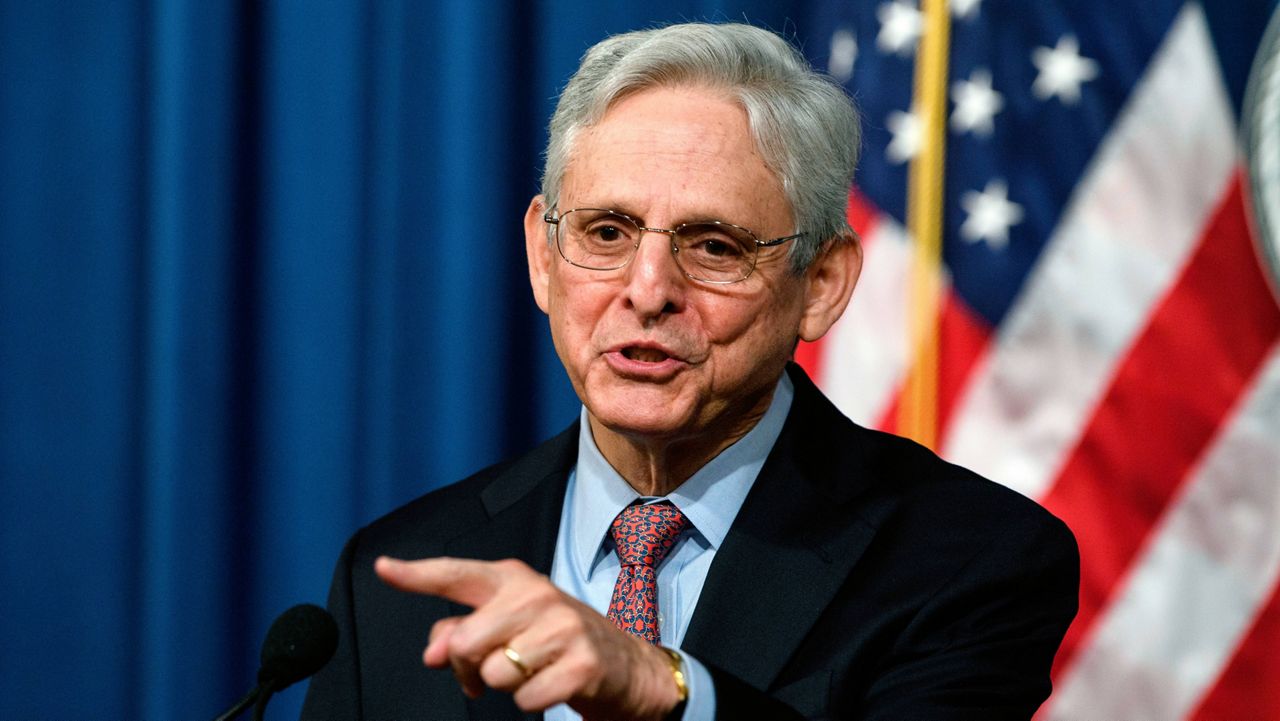Many federal law enforcement agents will soon be required to intervene if they witness a colleague using excessive force on a suspect.
What You Need To Know
- Many federal law enforcement agents will soon be required to intervene if they witness a colleague using excessive force on a suspect
- Attorney General Merrick Garland sent a memo Friday to the heads of law enforcement agencies within the Justice Department detailing the first revisions to the department’s use-of-force policy in 18 years
- The announcement of the changes came just days before the second anniversary of the death of George Floyd, who died under the knee of a Minneapolis police officer while other cops looked on
- The policy also says it’s the duty of officers to “request and/or render medical aid, as appropriate, where needed”
Attorney General Merrick Garland sent a memo Friday to the heads of law enforcement agencies within the Justice Department detailing the first revisions to the department’s use-of-force policy in 18 years.
“With these updates, our Department-wide policy is now more in line with the training and best practices you use every day,” Garland wrote.
The announcement of the changes came just days before the second anniversary of the death of George Floyd, who died under the knee of a Minneapolis police officer while other cops looked on.
“It is the policy of the Department of Justice to value and preserve human life,” the updated guidance says. “Officers may use only the force that is objectively reasonable to effectively gain control of an incident, while protecting the safety of the officer and others.”
The section on intervening states: “Officers will be trained in, and must recognize and act upon, the affirmative duty to intervene to prevent or stop, as appropriate, any officer from engaging in excessive force or any other use of force that violates the Constitution, other federal laws, or Department policies on the reasonable use of force.”
The policy also says it’s the duty of officers to “request and/or render medical aid, as appropriate, where needed.”
The policy draws from the 2020 National Consensus on Use of Force that was drafted by a coalition of 11 major law enforcement groups representing federal, state and local officers.
Garland said the Justice Department consulted the heads of the FBI; Drug Enforcement Administration; Bureau of Alcohol, Tobacco, Firearms and Explosive; U.S. Marshals Service; and Federal Bureau of Prisons on the new rules.
The policy does not apply to law enforcement agencies outside the DOJ, including state and local departments.
The changes will take effect July 19. Each agency will task a senior official with implementing them, including training.
The policy also repeats past guidance that officers should not use deadly force to prevent a suspect from fleeing or fire their weapons to stop vehicles unless the safety of officers or others are threatened.
It also says agents should not use lethal force “against persons whose actions are a threat solely to themselves or property.”



